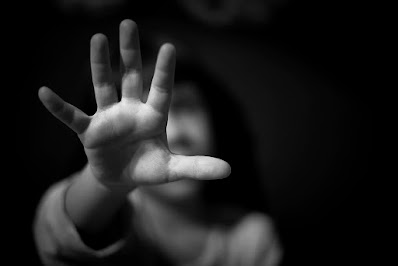Human trafficking is a heartbreaking reality that’s closer to home than many realize. Across Illinois, countless individuals are exploited and abused in ways that often go unseen. In 2022, the National Human Trafficking Hotline received 287 calls from Illinois, identifying 199 victims. And those numbers are just the tip of the iceberg. The true scale of this crime is hidden in the shadows, with many victims unable to speak out.
Illinois ranks 10th in the nation for human trafficking reports, a ranking driven in part by its location and infrastructure. With major highways, airports, and a large metropolitan hub in Chicago, the state is an unfortunate crossroads for traffickers. Vulnerable groups such as children, individuals in foster care, and people experiencing homelessness are often targeted, lured by false promises and manipulated into dangerous situations.
The urgency to address this crisis couldn’t be clearer. Yet, Illinois has faced criticism for failing to protect and support trafficking survivors. A 2023 report card from Shared Hope International, which evaluates child and youth sex trafficking responses, gave Illinois failing grades in critical areas like identifying victims and providing care. These systemic gaps call for swift and meaningful action.
That’s why Illinois House Republican lawmakers like Representatives Nicole La Ha and Brad Stephens have stepped up with a bold plan. Together, they’ve led the charge on the “Protect Victims of Human Trafficking Legislative Package,” a series of bills designed to strengthen protections for survivors, hold traffickers accountable, and close dangerous legal loopholes.
Standing Up for Survivors
Representative Nicole La Ha, who represents the 82nd District, is pushing forward three critical bills:
- HB 5134: This bill would add traffickers of minors to the Sex Offender Registry, making it easier to track and monitor offenders.
- HB 5466: Would remove the affirmative defense for those caught patronizing minors involved in prostitution. This ensures that offenders can’t escape responsibility by blaming the victim.
- HB 5467: This bill eliminates the statute of limitations on trafficking cases involving minors, ensuring that justice is available no matter how much time has passed.
“Our priority has to be the victims,” Rep. La Ha said. “We’re building a system where survivors can heal and offenders are held accountable. It’s about doing what’s right, for them and for our communities.”
Holding Traffickers and Buyers Accountable
Representative Brad Stephens, from the 20th District, knows that to dismantle trafficking, you must address demand. That’s where HB 5470 comes in. This bill specifically targets buyers by adding the term “patronize” to the legal definition of involuntary sexual servitude of a minor.
“Human trafficking exists because there’s a market for it,” Rep. Stephens explained. “When we hold buyers accountable, we weaken that market. It’s not just traffickers who need to face consequences, it’s everyone fueling this horrible cycle.”
Illinois’ Fight Against Trafficking
The fight against trafficking doesn’t stop at legislation. Traffickers are increasingly using technology and social media to target victims, especially teens. According to Polaris, the nonprofit behind the National Human Trafficking Hotline, platforms like Instagram and Snapchat are common tools traffickers use to groom their victims. Meanwhile, one in six runaways reported to the National Center for Missing and Exploited Children in 2022 was likely a victim of trafficking.
The Chicago area has become a hotspot for trafficking, with high rates of forced labor and sexual exploitation. But trafficking isn’t just a city issue, it’s happening in suburban and rural communities, too. The signs can be subtle, and traffickers count on that to operate under the radar.
How You Can Help
The fight against trafficking takes a village. Lawmakers like La Ha and Stephens are laying the groundwork, but there’s more work to do. Here are some ways to get involved or seek help:
National Human Trafficking Hotline: Available 24/7, you can call 1-888-373-7888 or text 233733 for confidential support or to report suspicious activity.
Illinois State Police Human Trafficking Initiative: This program provides tools to recognize trafficking and connect victims to resources. Visit isp.state.il.us for more information.
Chicago Alliance Against Sexual Exploitation (CAASE): This group works to end exploitation through survivor advocacy and legal aid. Learn more at caase.org.
Shared Hope International: Offers training and resources to combat child trafficking. Check them out at sharedhope.org.
The statistics are staggering, the stories gut-wrenching. But these numbers and headlines don’t define the people affected by trafficking; they are survivors, each with their own story of resilience. Through targeted legislation, community involvement, and unwavering support for survivors, Illinois can turn the tide.
Read more and stay up to date on this topic here.
